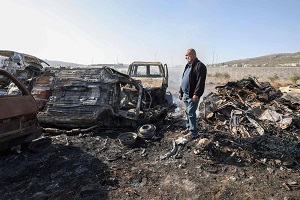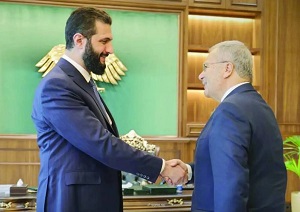Digital guardianship: Using AI to protect Jordan’s heritage - By Lubna Hanna Ammari , The Jordan Times
In Jordan, an ancient land where history is etched in stone, songs and living traditions, the need to protect and preserve heritage has never been more urgent. Climate change, urbanization and time threaten archaeological sites, while modernization strains intangible cultural practices. Artificial intelligence (AI) emerges as a powerful ally, offering not only documentation but dynamic guardianship preserving both visible heritage and the spirit of Jordan’s past for future generations.
A growing national commitment drives this transformation. At a landmark workshop by the Hashemite University’s Queen Rania College for Tourism and Heritage, experts gathered under “AI and ICT in Heritage,” signaling a strategic shift toward embedding AI into heritage preservation. Jordan’s academic institutions increasingly recognize digitization as central to maintaining national identity and cultural memory.
Concrete research underpins this effort. The Digital Documentation of Jordan’s Cultural Heritage group at the University of Jordan uses 3D scanning, GIS, photogrammetry, and AI to map and model archaeological sites, inscriptions, and architectural heritage. Their ambitious mission is to build a comprehensive digital archive supporting research and public engagement. AI-powered projects help record and analyze inscriptions Nabataean, Greek, Latin, Islamic, and more preserving them digitally and interpreting partially damaged texts.
Meanwhile, the Department of Antiquities collaborates with international partners to digitize archaeological heritage. Drone-based photogrammetry combined with AI produces detailed 3D models of Greco-Roman ruins in Jerash, Pella, and the Amman Roman Theater. These models support conservation planning, risk assessment, and virtual tourism, offering access without physically stressing the original sites.
Jordan also participates in regional initiatives like the iHERITAGE Mediterranean platform, using AR/VR/MR technologies to interpret UNESCO heritage. AI also safeguards intangible heritage. Folklore tales, music, dance, and oral traditions can fade over time, but generative AI models archive, analyze, and revitalize them. Digitized audio, video, and text allow AI to classify, transcribe, and contextualize Bedouin songs, village stories, and ritual practices, creating living repositories accessible to researchers, educators, and communities.
Museums, such as the Jordan Folklore Museum, house traditional costumes, musical instruments, and daily-life artifacts. Linking these collections to AI-driven narrative platforms allows the past to speak interactively. However, AI use comes with challenges: data security, intellectual property, and ethical access. Robust governance is essential to prevent misuse and protect community interests. Specialized AI models, like Mubeen AI trained on Arabic manuscripts and traditions, offer nuanced understanding that maintains narrative authenticity.
The future of digital guardianship depends on community engagement. AI tools must empower local voices children, elders, artisans, and storytellers. Educational and interactive applications, like AR mobile apps overlaying historical stories on heritage sites, can bring history alive. Prototypes like ARise demonstrate how AI and immersive media foster emotional connection and public participation. Generative AI can also reframe personal narratives, giving a platform to orally transmitted traditions often absent from official archives.
As AI integrates further into heritage preservation, Jordan faces a defining moment. This effort is about affirming identity, empowering communities, and shaping how future generations relate to their past.
In conclusion, AI provides Jordan with tools to protect its archaeology, folklore, and living traditions. True digital guardianship requires vision, care, and respect. With thoughtful implementation, AI can preserve the past while inspiring the future a heritage that endures, evolves, and remains alive in the lives of Jordan’s people.
Lubna Hanna Ammari is a specialist in educational technology




